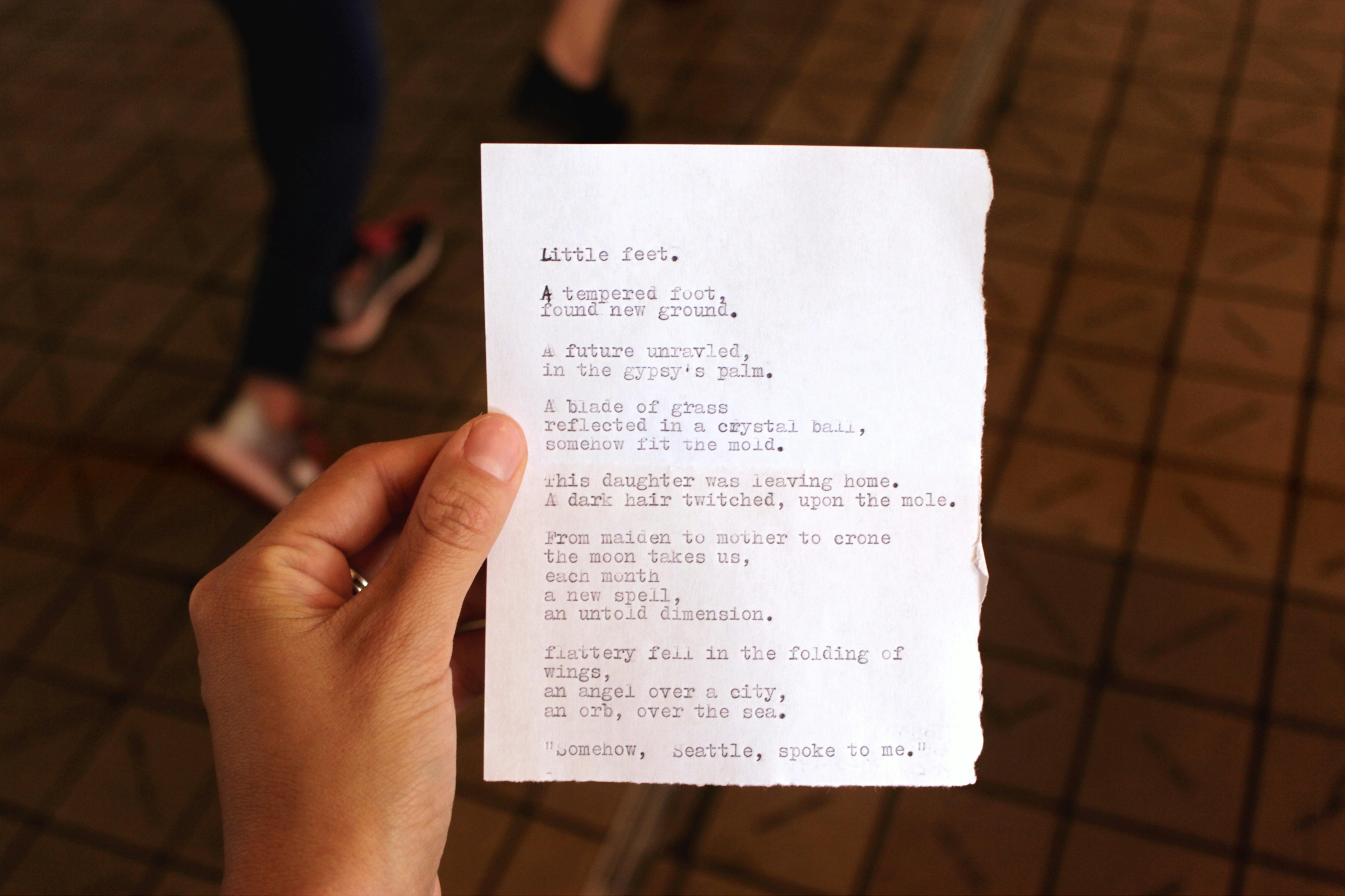How to Get Better at Writing Poems: A Beginner's Guide
by WriteSeen
Discovering how to get better at writing poems can transform your creative journey. It isn't just about stringing words together; it's about finding your unique voice and connecting deeply with your audience.
We've designed a guide to support you every step of the way:
- Explore essential poetry techniques to unlock emotional expression.
- Immerse yourself in a breadth of poetic styles and forms for inspiration.
- Engage with feedback and revision to refine your distinct poetic voice.
Discover the Foundations of Poetry
To get better at writing poems, start by understanding what makes poetry tick. Knowing the foundations allows you to craft pieces that resonate. Focus on form, structure, and tradition. Recognize how each influences the rhythm and flow of your writing.
Mastering Poetic Devices
Dive into tools like metaphor, simile, and imagery. These devices infuse your poetry with emotion and visual appeal. By studying them, you learn to express complex ideas clearly and powerfully. Engage with works by classic poets to see these techniques in action. It’s an eye-opener.
- Metaphors and similes create images that go beyond the literal.
- Imagery adds layers to your writing—making it vivid and memorable.
Understanding Form and Structure
Poetry comes in various forms, from sonnets to free verse. Each form presents unique opportunities and challenges. Familiarize yourself with different formats. This builds versatility and helps you find the best vessel for your ideas. Historical and cultural influences also shape these forms. Explore them to understand how context enriches your work.
Approach poetry like architecture: build your structure with intent and precision.
Immerse Yourself in Reading Poetry
Reading poetry opens doors to creativity. It nurtures your skills by exposing you to diverse styles and voices. When you read widely, you discover what clicks with you and, importantly, what captivates audiences today.
Seek Diverse Influences
Explore multiple genres and epochs. Whether it’s the haunting verses of Sylvia Plath or the rhythmic flow of Langston Hughes, each work sharpens your understanding. Dive into anthologies or curated lists. They provide a broader scope of styles and techniques.
- Discover fresh insights by reading the works of poets from various backgrounds.
- Look at how different poets tackle similar themes and adapt their approaches for your writing.
Engage With Context
Learning about the historical and cultural backdrop of a poem illuminates its subtleties. It’s like watching in color rather than in black and white. Engage deeply with texts to grasp different angles and methods. Use platforms like WriteSeen to connect with peers. Exchange thoughts on classic and contemporary poems.
Practice Writing Regularly
Writing regularly transforms your ability to express yourself. Set a routine. Make writing a part of your daily life. This habit reveals new ways to explore themes and styles. Fighting writer's block becomes easier when it’s just another part of your day.
Create a Writing Routine
Consistency is key. Establish a time and place for your daily practice. This doesn’t need to be long or elaborate. Even a few minutes each day makes a significant difference. Regular practice enhances fluency and confidence in your writing.
- A dedicated journal becomes a treasure trove of ideas and drafts.
- Use quick exercises to trigger inspiration and overcome creative blocks.
Utilize Tools for Improvement
Take advantage of artificial intelligence tools and prompts. They generate fresh ideas and themes to play with. Such technology offers unique perspectives that can be incorporated into your work. WriteSeen provides a distraction-free environment to focus on what truly matters—your creativity.
Experiment with Different Styles and Forms
Try different styles to spice up your writing repertoire. Whether you're delving into haikus, sonnets, or free verse, experimenting fosters confidence and sparks creativity. Each form offers its own set of rules and freedoms.
Encourage Versatility
When you explore various poetic forms, you develop adaptability. You learn what fits your voice and themes. Embrace the challenge of unconventional styles. This pursuit unlocks fresh pathways for expression.
Sometimes the best discoveries happen outside your comfort zone. Experimenting with unfamiliar styles can lead to unexpected brilliance.
Blending Narrative and Lyricism
Consider blending narrative elements into your lyrical writing. This hybrid style combines storytelling with poetry's emotional depth. Prose poetry often employs this fusion. It’s a canvas for both plot and poetic finesse. It’s another tool in your toolkit, expanding the ways you can connect with your audience.
Seek Constructive Feedback
After experimenting with styles and forms, external feedback is crucial. Receiving critiques helps you grow beyond your current limits. It's about balancing your vision with insights from others, refining your voice into something truly impactful.
Engage With a Community
Find a network of fellow poets to share your work. At WriteSeen, our community is designed for this. Engaging with other writers provides a diversity of perspectives. Honest, thoughtful feedback highlights both your strengths and areas for improvement.
- Join poetry workshops and online groups for diverse interactions.
- Take advantage of WriteSeen's platform to connect with creators globally.
Embrace Critique
Criticism, when constructive, is a powerful tool for growth. Approach it as an opportunity to understand your work better. Accepting feedback gracefully enables you to make informed revisions. Approach these sessions with an open mind, ready to adapt and improve.
Treat feedback as a stepping stone—it propels your writing to new heights.
Embrace the Revision Process
Every great poem undergoes several revisions. Embrace this process to enhance your poem's clarity and impact. The art of revision is about perfecting your initial ideas.
Focus on Clarity and Emotion
Revisiting drafts allows you to polish your narrative and emotional expression. Read your poem aloud. It’s a great way to catch rhythm issues or awkward phrasing. Focus on conveying your emotions clearly. This ensures your message resonates with readers.
- Adjust words and phrases to refine your poem’s rhythm and tone.
- Identify areas where stronger imagery or more precise language is needed.
Refining Through Multiple Drafts
Multiple drafts lead to profound insights. View each revision as a chance to sharpen your poem’s voice. With every rewrite, you'll discover new dimensions or eliminate redundancy. This dedication to practice is key to finding a poem's true essence.
Cultivate a Unique Poetic Voice
Your voice is your signature. It's what makes your poetry distinctive. Cultivating a unique voice involves drawing from personal experiences and influences.
Draw From Personal Experiences
Authenticity in poetry stems from personal experiences. Share your journey, sights, and emotions. This provides depth, connecting you with readers on a profound level. Explore these facets to enrich your narrative style.
- Personal insights infuse your poetry with a relatable, genuine quality.
- Use specific, vivid detail to share your experiences clearly and evocatively.
Develop a Consistently Strong Opening
A striking opening captures attention. Your first few lines should set the tone and invite readers into your world. Use strong imagery or a provocative statement. This hooks the audience and encourages them to read on.
Seek Inspiration from Your Surroundings
Find inspiration in your everyday environment. It surrounds you, waiting to be harnessed into creativity. Observations and emotions act as catalysts, ready to be transformed into poetic expression.
Observe and Reflect
Pay attention to small details. The colors of a sunset or a bustling street. These observations spark creativity. Reflection transforms them into powerful poems. They hold the potential to unearth fresh themes and perspectives.
- Everyday moments become central themes in your work.
- Reflection deepens your emotional connection with your writing.
Capture Emotions
Emotions are the lifeblood of poetry. Channeling what you feel into words creates relatable and powerful pieces. Keep a journal or notes system to record emotions in real time. This is a rich resource to draw upon for future poems.
Use your emotions as a guiding thread—leading readers through your poetic journey.
Conclusion
Learning how to get better at writing poems starts with mastering the basics—technique, form, and structure. As you explore different poetic styles, experiment with rhythm, and embrace literary devices, you begin to shape your voice with intention. Every poem becomes an opportunity to grow, connect, and refine your creative instincts.
Progress also comes from engaging with others. Reading widely, exchanging feedback, and revising your work based on thoughtful critique are essential steps in becoming a stronger poet. Through practice and community, your confidence builds—and so does your ability to express complex emotions with clarity and impact.
Join WriteSeen to take your poetry further. Connect with fellow poets, share your drafts, and access tools designed to support every stage of your writing journey. Discover how to get better at writing poems by turning inspiration into craft—and your voice into something unforgettable.

